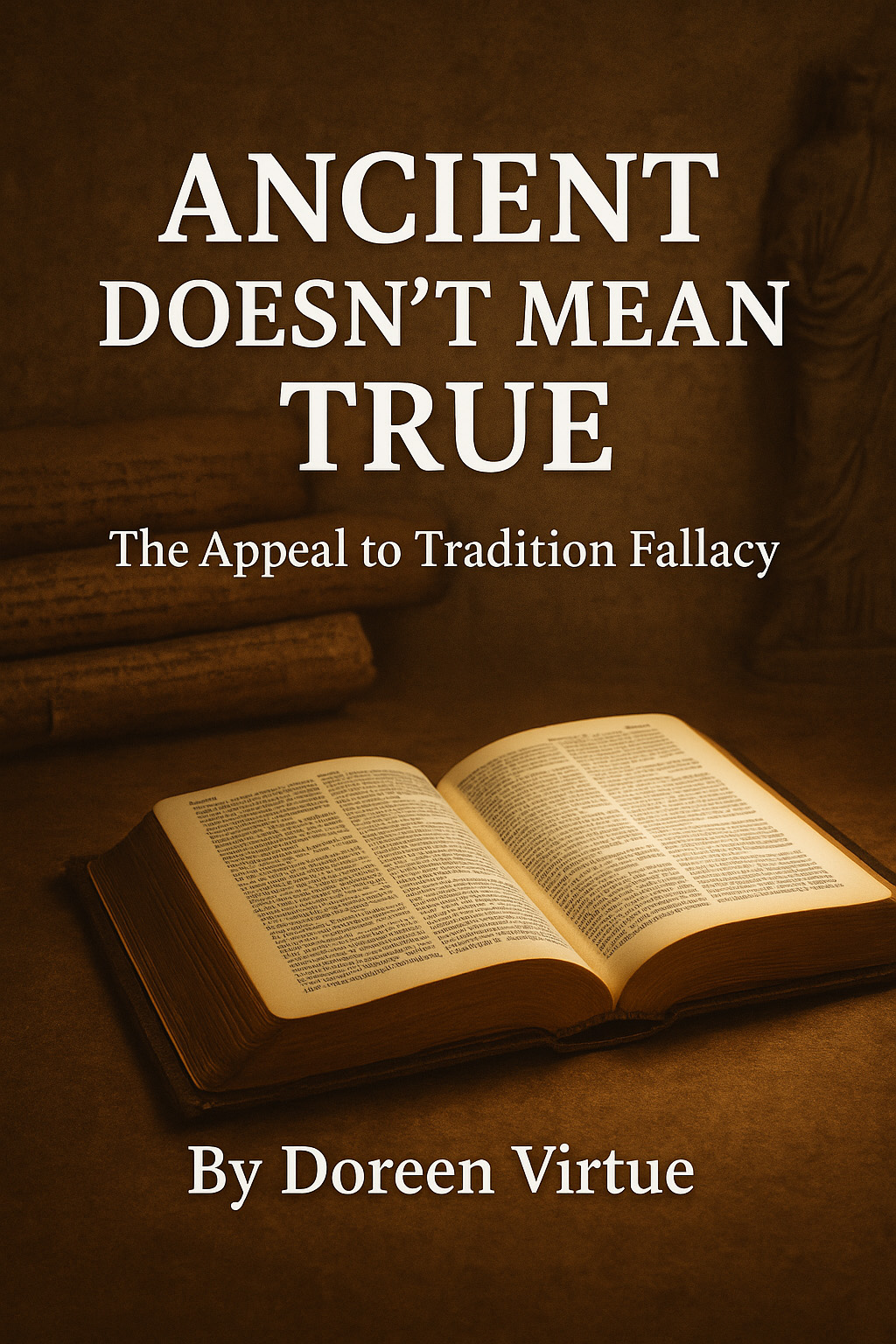⏱️ Estimated Reading Time: 2 min read
Ancient Doesn’t Mean True: The Appeal to Tradition Fallacy
By Doreen Virtue
Why Ancient Teachings Aren’t Always Biblical
In the new age, we believed in teachings because we thought they were ancient. We were impressed by the age of the teachings, so we thought it must be valid. So we accepted Hinduism, feng shui, and other false teachings because old manuscripts taught them.
This is a classic example of the appeal to tradition fallacy.
As Christians, we know that it doesn’t matter if a teaching is ancient or that old manuscripts or “desert fathers” or “early church fathers” taught it. What matters is whether or not it aligns with Scripture.
The appeal to tradition fallacy occurs when someone claims that something must be true, valid, or better simply because it has been believed or practiced for a long time.
This line of thinking assumes that age equals truth or value. Just because an idea is ancient doesn’t mean it’s correct — many ancient beliefs were based on heresy, condemned practices, superstition, idolatry, or ignorance of God’s truth.
We must compare everything with the Bible, and reject anything that contradicts the Bible. Only the Word of God is timeless, trustworthy, and true.
Check out our ongoing series on Scripture for All of Life to keep growing in biblical discernment.
Doreen Virtue holds a Master’s degree in Biblical & Theological Studies with highest honors from Western Seminary (56 units / 2021), and an MA in Counseling Psychology from Chapman University. Prior to being saved by God‘s grace and mercy in 2017, Doreen was a psychotherapist specializing in women’s issues, rated in the top 15 most influential living spiritual teachers by Watkins, and the top selling new age author in the world. She was born and raised in new thought churches which she attended for 33 years, before segueing to new age and Wicca in 1991 while touring with a mind-body-spirit conference organization. Before her salvation, Doreen frequently appeared on Oprah, CNN, The View, Coast to Coast and other liberal secular media. After the Holy Spirit convicted her of her sins, while she read Deuteronomy 18:10-12, Doreen repented and gave her life to Jesus as her Lord and Savior. Doreen has been helping professing Christians to identify and avoid new age and new thought deception. Doreen volunteers in discipling women who’ve been saved out of New Age in a private Facebook group. Doreen was a speaker at the Answers in Genesis 2025 women’s conference at the Ark Encounter. She has been featured on American Gospel 3, American Gospel TV, Daily Wire, Moody Radio, Spillover, Christianity Today, Cultish, New York Magazine, Spiritual Counterfeits Project, Servants of Grace, and other Christian media.




